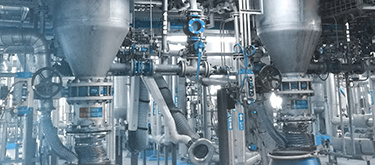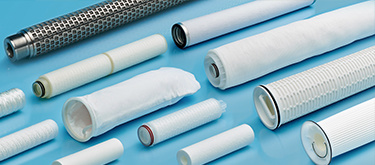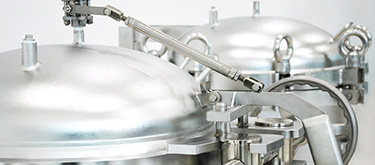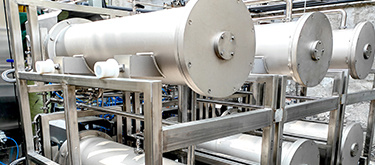
News
Precision Gas Purification for Semiconductors: Ultra-Clean Filtration to Protect Every Wafer
2025-11-20
Global expansion of production capacity in major chip manufacturing regions, such as Asia-Pacific, is driving demand for upstream equipment and components. While the Asia-Pacific region holds a significant market share (as indicated by the latest Industry Research report: Semiconductor Filters Market Overview), the strengthening trends of geopolitics, supply chain security, and reshoring are leading to the construction of new factories in various regions. This signifies incremental demand for filtration systems arising from new production capacity. As semiconductor manufacturing advances towards more sophisticated nodes/processes, larger scales, and a wider variety of applications, the need for clean, precise, and reliable filtration is consequently increasing. Although filters are not the most 'glamorous' equipment component, their role in ensuring process yield, preventing contamination, and maintaining production line stability is becoming increasingly critical. Industry’s progression towards more advanced nodes like 3 nm and 2 nm demands increasingly stringent requirements regarding impurities, particles, chemical contaminants, water, and gas purity.

- Electronic Specialty Gases (ESG) are key materials in high-end industries such as semiconductor manufacturing, displays, photovoltaics, and LEDs. Their purity, safety, and stability directly impact device yield. Filtration & Purification is one of the core processes ensuring the quality of electronic specialty gases. Classified by application, electronic specialty gases include etching gases, doping gases, epitaxy/deposition gases, carrier gases, and cleaning gases, among others. They are widely used in process steps such as thin film deposition (CVD / ALD / PVD), etching, ion implantation, diffusion, and lithography.
Detailed Explanation of Electronic Specialty Gas Filtration Principles
Typical contaminants in electronic specialty gases include solid particles (sourced from cylinder valves, pipelines, welding, valve wear, gas reaction by-products), metal particles/ions (e.g., Fe, Ni, Cr, Ti), molecular contaminants (water (H₂O), oxygen (O₂), hydrocarbons (CxHy), siloxanes, etc.), and chemical by-products. Contaminants are highly detrimental to advanced processes. At nodes <10 nm, particles with diameters as small as tens of nanometers can cause process defects such as defect points, line width variation, terminal breakdown, and wafer scrap. Therefore, the goal of electronic specialty gas filtration is to achieve near-perfect purity, thereby "stabilizing processes, protecting equipment, and improving yield."
🌍 Particle Level: (Range: 0.0015 – 0.1 µm).
🌍 Impurity Level: ppt – ppb.
🌍 Metal Ions: Very low metal extractables, preventing re-contamination from leachable.
🌍 System Pressure Stability: Protects downstream MFCs / Valves / ALD Chambers.
💾 Typical Filtration Points in Electronic Specialty Gas Systems
1) Cylinder Outlet (Cylinder → Regulator)
Purpose: Intercept valve particles and contamination from transportation.
2) Manifold System Inlet
Purpose: Prevent particles or impurities from different cylinder sources from entering the main pipeline.
3) Inside Process Gas Cabinets / VMBs / VMPs
Purpose: Protect MFCs, valves, and pressure controllers.
4) Near Tool Inlet (Tool → Chamber)
e.g., ALD / CVD reaction chambers, etching chambers, diffusion furnaces. This is the most particle-sensitive location with the highest filtration requirements, typically utilizing 0.0015 µm grade ultra-high purity filters.
💾 Main Technical Types of Electronic Specialty Gas Filtration
1) Ultra-High Purity (UHP) Gas Filters
Common Materials:
- Sintered Metal (Sintered Stainless Steel / Nickel / Hastelloy)
- Inert Alumina Oxide
- PTFE
Typical Filtration Rating: 0.0015 µm, 0.01 µm, 0.1 µm
Pressure Rating Capability: Up to 20 – 30 MPa (for ultra-high pressure delivery systems)
Applications: ALD, CVD, Epitaxy, Etching Gases, Inert Carrier Gases, Cleaning Gases, etc.
2) Purifiers
Utilize: Metal oxides, activated copper, molecular sieves, specialty adsorbents to reduce impurities to ppb / ppt levels. Used for removing molecular-level impurities, such as:
- H₂O, O₂, CO, CO₂
- NH₃, HC
- Metal-organic residues
3) Combined Purification Filtration (Filter + Purifier)
Some advanced applications require simultaneous control of particles and molecular impurities, achieved by integrating filtration and purification within a single housing.
4) Dedicated Inert Gas Filtration
For high-purity delivery and high-flow stability of N₂ / Ar / He, focusing on:
- Low pressure drop
- High flow consistency
- No metal release
💾 Feature-Tec by Feature-Tec Electronic Specialty Gas Filtration Product Recommendations
Gases used in semiconductor processes require 99.999% purity or higher. Feature-Tec by Feature-Tec offers a powerful range of ultra-pure gas filters capable of removing minute impurities from etching gases. For corrosive gases like chlorine, our ultra-pure gas filter series offers high-temperature resistance and strong corrosion resistance, suitable for bulk gases, oxidative gases, electronic specialty gases, and corrosive gas filtration.

Contact
Hotline: (+86)400-820-6150
Email: marketing@feature-tec.com
Address: 8/F, Block A, Building 3, Tianhua Information Technology Park, 299 Longcao Road, Xuhui District, Shanghai
COOKIES
Our website uses cookies and similar technologies to personalize the advertising shown to you and to help you get the best experience on our website. For more information, see our Privacy & Cookie Policy
COOKIES
Our website uses cookies and similar technologies to personalize the advertising shown to you and to help you get the best experience on our website. For more information, see our Privacy & Cookie Policy
These cookies are necessary for basic functions such as payment. Standard cookies cannot be turned off and do not store any of your information.
These cookies collect information, such as how many people are using our site or which pages are popular, to help us improve the customer experience. Turning these cookies off will mean we can't collect information to improve your experience.
These cookies enable the website to provide enhanced functionality and personalization. They may be set by us or by third-party providers whose services we have added to our pages. If you do not allow these cookies, some or all of these services may not function properly.
These cookies help us understand what you are interested in so that we can show you relevant advertising on other websites. Turning these cookies off will mean we are unable to show you any personalized advertising.




